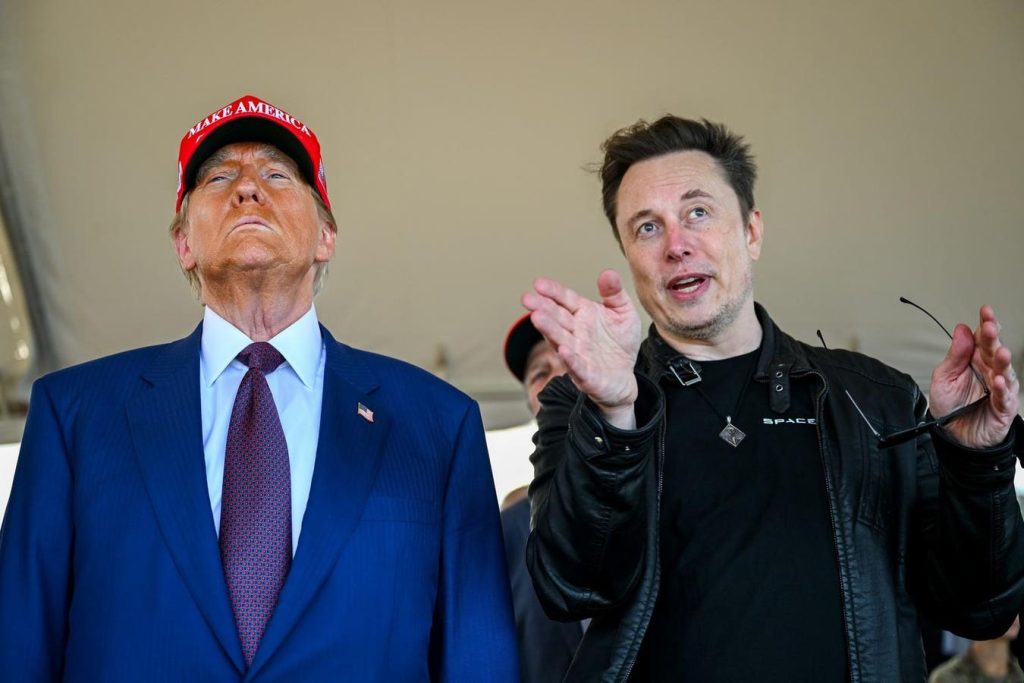President-elect Donald Trump is poised to create an administration that could surpass the record he set in 2016 for appointing the wealthiest cabinet in history. Following a trend from his first term, Trump has chosen a number of billionaires to fill key positions within the government, demonstrating his continued alignment with affluent individuals and business leaders as he seeks to reshape the federal landscape. Prominent names include Elon Musk, Warren Stephens, and Linda McMahon, all of whom are expected to use their business expertise to tackle various government inefficiencies and bureaucracies.
Among Trump’s most notable picks is Elon Musk, the innovative founder of Tesla and SpaceX, who has solidified his stance as one of Trump’s closest allies. Musk will head the newly envisioned Department of Government Efficiency, an advisory platform aimed at “dismantling government bureaucracy, slashing excess regulations, cutting wasteful expenditures, and restructuring federal agencies.” His groundbreaking work in technology and space exploration positions him uniquely for this role, with a Forbes valuation pegging his net worth at an astounding $337.3 billion. Alongside Musk is Vivek Ramaswamy, a biotech entrepreneur known for his success with Roivant Sciences; he will join Musk in drive efficiencies in government processes.
In his strategic approach to diplomacy, Trump has nominated Warren Stephens as ambassador to the United Kingdom. This position, which requires Senate confirmation, reflects Trump’s tendency to select significant donors to fill key roles. Stephens heads Stephens Inc., an investment bank with historical ties to major players including Walmart, boasting a net worth of $3.4 billion. Meanwhile, Linda McMahon, the former WWE CEO, has been tapped for the role of Secretary of Education, following her previous tenure as administrator of the Small Business Administration during Trump’s first term. McMahon’s extensive fundraising activities for Trump’s initiatives have solidified her position and association within his circle, further merging business and governmental functions.
Another billionaire tapped for Trump’s cabinet is Jared Isaacman, founder of Shift4 Payments, who has been appointed as the administrator of NASA. Isaacman’s entrepreneurial background and successful track in the processing space, alongside his defense ventures, will be pivotal in managing the complexities of the U.S. space agency. His net worth is estimated at $3 billion, contributing to the luxurious profile of Trump’s cabinet. Additionally, Howard Lutnick, known for his pivotal role in revamping Cantor Fitzgerald after the September 11 attacks, has been designated as commerce secretary. His experience in the financial sector will be an asset for Trump’s economic agenda.
Trump is not only selecting billionaires for his cabinet but also a mix of affluent individuals from various backgrounds. For instance, Massad Boulos, a key advisor on Arab and Middle Eastern Affairs, has been chosen for his familial relationship with Trump through his daughter, Tiffany Trump. Other notable selections include financier John Phelan for secretary of the Navy and Charles Kushner fulfilling the ambassadorial role in France. These selections reflect Trump’s inclination to surround himself with individuals whose personal and financial ties run deep, illustrating a blend of personal favor and professional alignment.
The cumulative net worth of Trump’s cabinet nominees and appointees is estimated at around $340 billion, as highlighted by New York magazine. Trump’s wealthy network of appointees echoes the pattern of his first term, which was characterized by unprecedented levels of wealth among cabinet members. However, his picks have not been without controversy; instances of scandal surrounding some nominees may complicate the confirmation process as it did previously. Trump’s strategic choices highlight his commitment to leveraging business-oriented individuals to drive his governance agenda, signaling an administration that marries private wealth with public service in an effort to transform federal governance.

